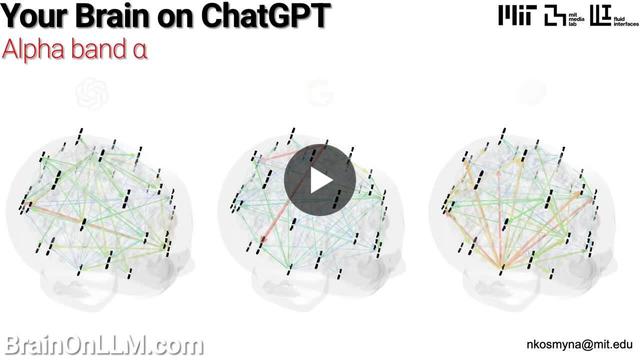❝Over four months, LLM users consistently underperformed at neural, linguistic, and behavioral levels. These results raise concerns about the long-term educational implications of LLM reliance and underscore the need for deeper inquiry into AI's role in learning.❞
Hell of a research abstract there, via @gwagner:
(And please see downthread!)




 Stellar 🇫🇷
Stellar 🇫🇷 
